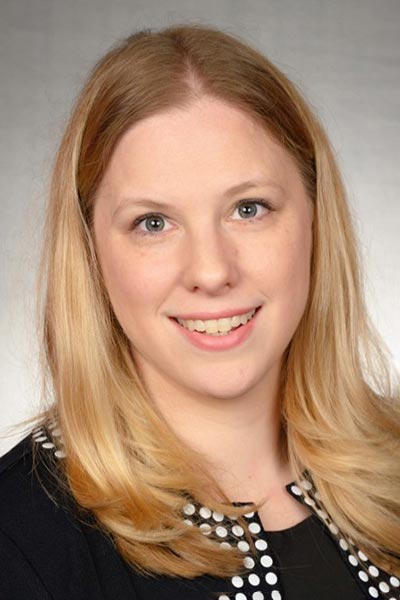Studies from the past decade have concluded that rheumatology is experiencing a shortage of practicing specialists. This concerning trend underscores the importance of effective education and workforce training to recruit and retain rheumatologists across the globe.

The education and workforce program sessions at ACR Convergence 2024 are designed for a diverse audience, including clinician-educators, program directors, division directors, and anyone actively involved in maintaining, recruiting, and sustaining the rheumatology workforce.
“The workforce and education communities within the ACR are phenomenal. They are a very welcoming and collaborative group,” said Lisa Zickuhr, MD, MHPE, Chair of the Education and Workforce Team for the Annual Meeting Planning Committee (AMPC). “These sessions provide a unique opportunity to develop your skills and network with colleagues. We hope the programming presented at ACR Convergence will help the workforce and education communities thrive and flourish.”
Tackling Workforce Shortages in Rheumatology on Saturday, Nov. 16, at 9 a.m. ET will cover the multifaceted issues contributing to rheumatology’s workforce challenges. Experts and rheumatology practitioners will identify the causes of burnout, share effective coping strategies, and explore solutions to work toward a sustainable, patient-centered future for rheumatology.
A topic nearly every planning team within the AMPC will discuss is the increasing prevalence of artificial intelligence (AI) in healthcare. AI technology has significant implications for the future of the rheumatology education and workforce community.
“AI is going to drastically change how we practice as educators,” Dr. Zickuhr said. “We need to start preparing our trainees to incorporate AI into their practices when they leave their fellowship and enter the workforce. Similarly, we must prepare our rheumatology workforce for the various ways that AI will be integrated into the delivery of care.”
On Tuesday, Nov. 19, at 9:30 a.m., Integrating AI into Rheumatology Education: A New Frontier for Trainees and Educators, will provide insights into current applications, future possibilities, and the ethical considerations of incorporating AI into medical education. The session will also discuss creating personalized learning pathways with AI to adapt the content, pace, and learning strategies to meet diverse learner needs.
The first-ever education and workforce debate will also be held on Saturday, at 10:30 a.m. with Workforce & Education Debate: The Duration of Rheumatology Training Should Be Competency-Based. With competency-based training, rheumatology trainees would be promoted once they achieve certain milestones for independent practice. During this debate, speakers will cover the benefits and pitfalls of converting rheumatology fellowship training from time-based to competency-based standards.
“With competency-based learning, some rheumatology fellows could graduate early and enter the workforce earlier to help with some of the problems associated with the shortage of specialists,” explained Dr. Zickuhr.
Another session focused on expanding access to rheumatologic care, Rheum for All: How to Improve Rheumatology Access with Project ECHO, will explore Project ECHO (Extension for Community Healthcare Outcomes) to promote evidence-based rheumatology care in communities with inadequate access to these services on Monday, Nov. 18, at 9 a.m. Project ECHO is a well-established educational model in which specialists train primary care providers to manage complex chronic diseases in an interactive virtual setting. Attendees will learn to design and implement their own rheumatology ECHO programs.
On Monday at 10:30 a.m., Education and Wellness Inspirations (Teaching Pearls) will highlight innovative approaches from rheumatology educators on how to teach diverse trainees across the learning continuum and integrate wellness into various settings, such as workshops or at the bedside.
“Teaching Pearls is a fan favorite at the ACR Educators Conference, so we’re excited to adapt it and bring it to ACR Convergence this year,” Dr. Zickuhr said. “The presentations will include recently collected data and recommendations for attendees to take these novel innovations and apply them to their own programs.”
Additional Education and Workforce Sessions
Saturday, Nov. 16
- From Idea to Impact: Transforming Educational Projects into Scholarly Successes, 1-2 p.m., Room 206
- Medical Education Year in Review, 3:30-4:30 p.m., Room 152B
Sunday, Nov. 17
- Bridging the Gap: Promoting Workforce Diversity and Ensuring Cultural Competency in Rheumatology, 9-10 a.m., Room 152B
- Bringing Socrates Into the ClassRheum: Using Questions as an Innovative Teaching Tool, 10:30-11:30 a.m., Room 206
- Giving and Receiving Feedback: How to Avoid Common Traps, 1-2 p.m., Room 201
- From Canvas to Clinic: How Visual Arts Enhance Rheumatology Education, 3-4 p.m., Room 206
Monday, Nov. 18
- When 21st Century Learners Are in the Rheum: Effective Teaching Strategies for the Busy Clinician, 1-2 p.m., Room 206
- The Fundamentals of Narrative Medicine, 3-4 p.m., Room 201
Tuesday, Nov. 19
- From Novice Teacher to Master Educator: You Can Get There!, 8:15-9:15 a.m., Room 145AB
Register Today for ACR Convergence 2025

If you haven’t registered for ACR Convergence 2025, register today to participate in this year’s premier rheumatology experience, October 24–29 in Chicago. All registered participants receive on-demand access to scientific sessions after the meeting through October 31, 2026.
